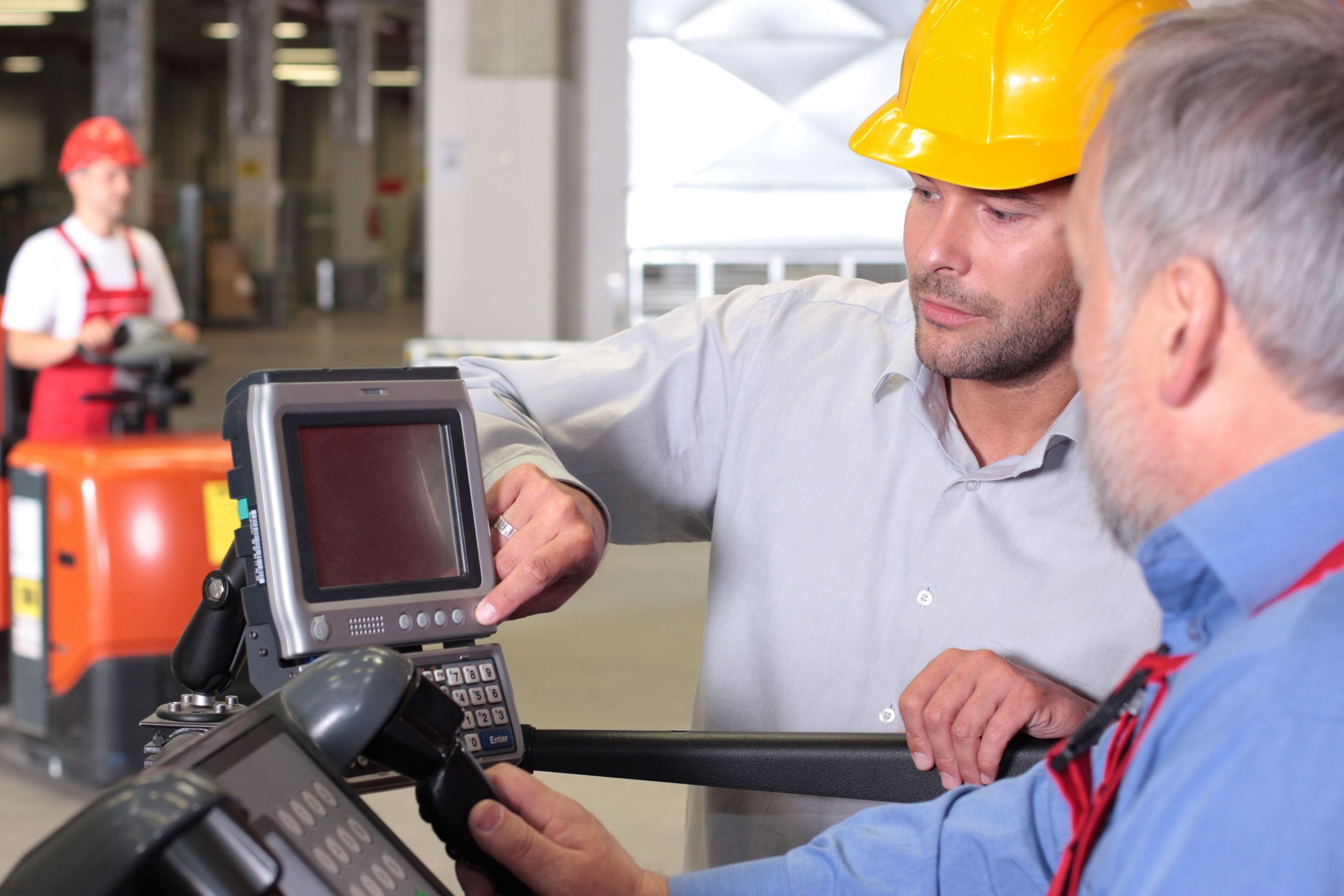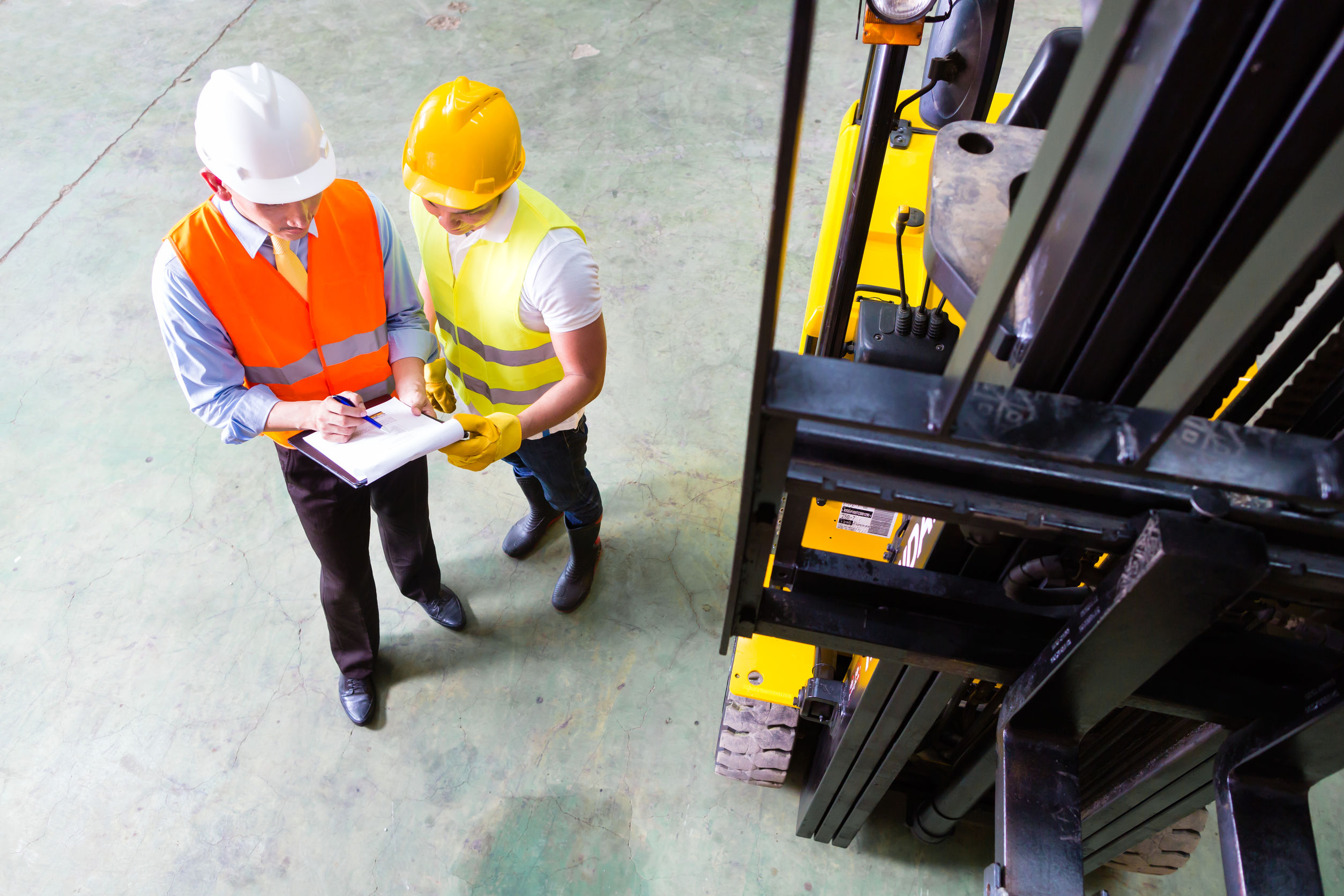Forklifts give us the power to save time, money, heavy lifting, and unloading, as well as increase efficiency in warehouse logistics. With that being said, being a forklift operator takes discipline, focus, and continuous training.
There is a hard line between being a professional forklift operator and being an experienced forklift operator professional. Don’t worry – in time you will have the experience. We have a few helpful tips to get you through the ‘newbie’ phase of learning forklift operations, as well as provide you with valuable tips to remember throughout your career.

Check your machine
This is a step that must be taken each time you sit down to operate your forklift. Regardless of your familiarity (or lack of) with a machine, you must make all of the proper inspections to it before operating.
You can avoid a preventable accident by checking the levels of both the gas and battery. Two major checkpoints are gas and electricity. Checking the gas and battery of your forklift prior to use will assure the forklift is safe and ready to use. When entering the forklift, check the gauges on the dashboard and assure that both are the appropriate industry-standard levels. When ready to use, operate the forklift as you were taught, adhering to all company protocols and procedures.
Even if you believe you were the last one to use and inspect the forklift, you should still go through the motions and complete your safety checklist before operating the machine. Someone may have used the forklift after you, a tire might have lost pressure, or a battery could have malfunctioned since you last used it.

Always Follow Safety Best Practices
This might seem like a given, but oftentimes we test boundaries or cut corners when we become comfortable with a process. It’s just part of human nature. When you are operating 5,000 ton machinery, forklift safety should always be your first priority. Follow company given guidelines and always be sure that your safety processes are of the highest standards. Seeking out new and efficient safety guidelines is a great way to begin establishing yourself as a forklift professional as well.
Communicate and Stay Alert
For those that are new to operating forklifts or venturing into the material handling industry, communication is of utmost importance. If you are operating a forklift, there are many methods of conveying intent. First, be sure to use lights and signals when needed to alert oncoming traffic and nearby personnel. It is also important to assure these devices are working to full functionality.
Second, be sure the forklift backup alarm is working. This is even more essential when the operator may not be able to see an employee behind the forklift due to blind spots. In addition to queues and use of forklift devices to alert coworkers, it is extremely important to maintain consistent verbal communication with fellow employees. Always let a coworker and/or manager know your whereabouts and intent with your forklift.

There’s no such thing as too much training
Many industries require continuing education and training to keep up with the growing demands of the business and supply/demand, and forklift operating is one of them. CertifyMe allows the flexibility to earn your forklift driver certification from anywhere. OSHA certification is mandatory for many employers. Keeping up on regulations and technology upgrades is a great way to become a trusted professional. Always scour the web for free resources to enhance your skills and safety knowledge.
If In Doubt, Ask for Help
Don’t be afraid that you can’t carry your load (literally and figuratively). Never hesitate to ask for help or assistance with your material handling equipment (MHE), whether it is about unloading materials, loading, safety, or maintenance. Your first priority is always safety – as long as you keep that in mind throughout your career, you will always be one step ahead.

Let’s talk MHE! We are happy to answer your forklift safety and purchasing questions. What are some other safety tips your warehouse abides by?

